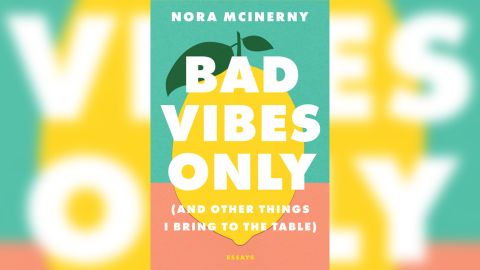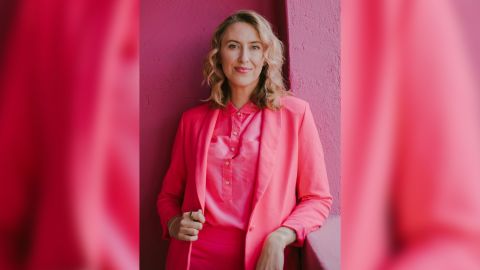Straight away, Nora McInerny noticed core differences in how people responded to the coronavirus pandemic.
For some, the deadly virus and its upheaval constituted the “first big thing they’d ever been through.” Meanwhile, McInerny and others whose lives had been shaped by grief, loss or tragedy had long known that “life is fragile and our pace in this modern world is untenable.”
McInerny’s first husband, Aaron, died three days before Thanksgiving 2014, leaving her to raise their son, Ralphie. She’d just had a miscarriage. She had lost her father less than one month earlier.
Her work — as host of the podcast “Terrible, Thanks for Asking” and author of “It’s Okay to Laugh (Crying Is Cool Too)” and “No Happy Endings,” among other memoirs — reflects those losses, countering the societal pressures to “live, laugh and love” with candor, realism and wry humor.

Her new essay collection, “Bad Vibes Only: (And Other Things I Bring to the Table),” offers a cutting and comedic retort to “our aggressively, oppressively optimistic culture” and “obsession with self-improvement.”
The slogan “Good Vibes Only” makes “a cute saying for a mug but a pretty ominous interpersonal standard,” McInerny wrote.
Here, she suggests honesty and underachievement as goals better suited to reality.
This conversation has been edited and condensed for clarity.
CNN: What do you hope people will take away from your work?
Nora McInerny: I want my work to lower the bar for people. We have so much intense pressure to achieve and to perform in the face of all the suffering and struggle of modern life. You do not have to do anything other than just be a decent person and survive.

The year 2021 was the worst year of my life since 2014, when my husband, Aaron, died. This horrible illness went sweeping across our globe and immediately people started to “bright side” it. I remember sitting in my living room cross-legged, trying to figure out how we could do more work with fewer resources. Meanwhile, people were trying to shine it up and alchemize it into some sort of self-improvement lesson. I resist that. All my work has been sort of pushing against the optimist industrial complex.
…

